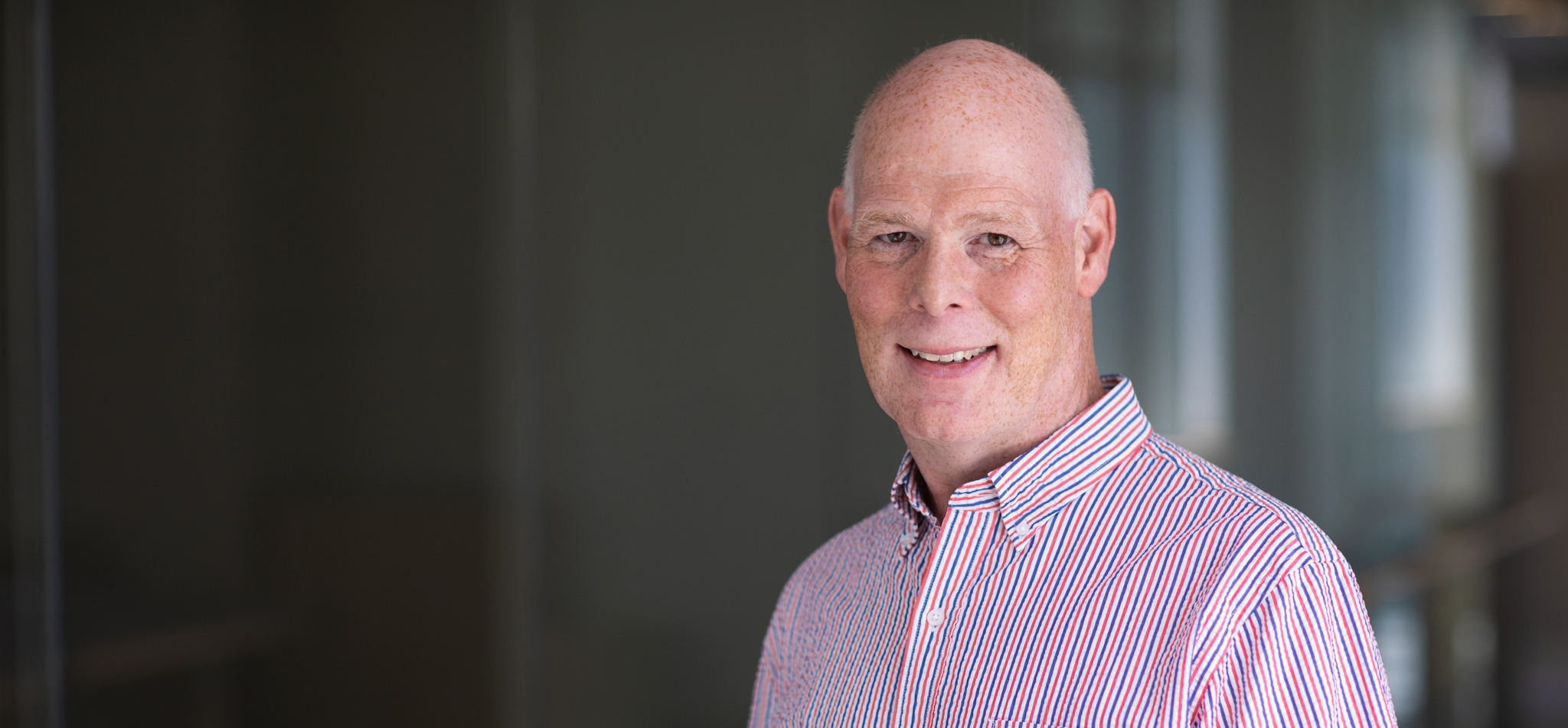Tim Talty: Lessons from Detroit

Introducing Tim Talty
- Joined ECE June 2019
- Adjunct faculty, University of Michigan-Dearborn, 1999-2019
- Product line manager, laboratory group manager, technical fellow, GM, 2005-2019
- Associate professor and department chair, Fairfield University, 2012-2013
- Supervisor, Ford Motor Company, 1999-2001
- Associate professor, West Point, 1998-2001
- Ph.D., electrical engineering, University of Toledo, 1996
- B.S., electrical engineering, Trine University, 1987
Lessons from Detroit
Tim Talty, who joined ECE as collegiate professor and director of admissions for the Master of Engineering (M.Eng.) program last summer, understands what companies are looking for in engineers. He spent over 20 years in research and development at Ford and GM, designing new products and overseeing teams of engineers through the ups and downs of the automotive industry.
After completing his Ph.D. at the University of Toledo in 1996, he worked as a product development engineer at Ford, specializing in infotainment and radio features. Then, ready for a challenge, he moved to West Point, where he taught a variety of undergraduate courses, including microwave engineering, digital signal processing, and communication theory.
“I loved my job at West Point,” he says, “it was wonderful.” But Ford was restructuring and looking for new engineering talent. A headhunter reached out and Talty went back into the automotive industry. This time, his focus was on telematics — embedded cellphones and remote vehicle diagnostics. After a short period, Ford decided to change research directions. “At the same time,” he explains, “GM was launching Onstar. Almost everybody at Ford from telematics ended up at GM. And GM actually launched a successful product.”
He stayed with GM and participated in the development of the next generation of automotive features, like wireless connectivity and autonomous functions. Throughout this period, he kept teaching, accumulating experience at Fairfield University and the University of Michigan-Dearborn, which allowed him to return to academia after retiring from GM in 2019.
His career leading projects for Ford and GM shapes the way that he teaches and mentors students. “I tell my students I want them to be capable of being productive from day one on the worksite. So, I make sure they’re not just grinding problems at the back of the chapter. We have to make sure they develop problem-solving skills.” To help students develop that independence, he pushes them with hands-on, open-ended projects that require them to analyze a problem and devise a path and a method to solve it. “They hate uncertainty. They prefer simple questions with a single path to a single answer.” But that’s not what employers want from their new engineers.
He also emphasizes simulation, explaining that it’s particularly crucial in the automotive industry. “It’s expensive to wreck a car. The more you can do in simulation, the better.” He requires his students to use MATLAB extensively, noting, “The students don’t like it. There’s a lot of pushback, but they’re going to be very capable and handy engineers when they graduate.”
With so much time in product development, Talty speaks from experience.


